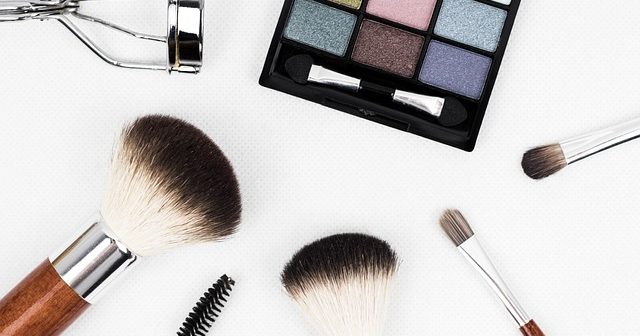Mahasweta Pal, Kolabtree freelancer and science writer, lists the top beauty brand incubators and accelerators that are helping cosmetics startups launch their products successfully.
Currently, the beauty industry is exhibiting trend-shifts away from the age-old legacy brands, as small, independent brands are becoming the choice for millennial women. Cosmetics startups are tapping into the demand for clean, vegan and cruelty-free products. As the anti-plastic wave is taking over, consumers have also become more conscious about choosing eco-friendly products that are natural and do not contain microplastics. Beauty businesses, big and small, are looking to hire formulation chemists who can help them develop products that meet the new consumer demand.
With the social media buzz shaping an online health & beauty community, beauty enthusiasts across ages, demographics, and professions are co-creating a beauty revolution. Beauty startups are soon becoming “beauty unicorns” with billion-dollar valuations, most of them incubated by America’s oldest and latest funding and incubation programs.
More than $2.7 billion has been invested by venture capitalists in the personal care and beauty startups between 2008 and 2017. Even L’Oréal, Sephora, Estée Lauder, and LVMH have started their own startup acceleration programs in the past 2 years.
Here are some of the most influential business incubator programs in the United States that have not only made a splash in the beauty-tech space but have also changed the overall perception of beauty.
1. Stanford Graduate School of Business
When Tara Fela-Durotoye started her cosmetics business in Africa a decade ago, she became the hope for millions of African women to rise above decades of poverty. However, it was not until she was able to get seed funding from the Stanford Institute for Innovation in Developing Economies that her dream to become bigger and more accessible was realized. Today, Tara owns one of the most successful new age beauty companies House of Tara International that houses makeup studios, beauty schools, and cosmetic product lines for African women. Stanford’s seed program provides leadership skills, growth training, coaching programs and business scaling support through its business faculties.
Stanford’s rigorous entrepreneur training programs are meant for startup ideators passionate about building fast-paced businesses. In particular, the Stanford SEED provides financial management, product management, design and scale-up assistance with a keen focus on expansive growth and job creation. If you have a startup idea, it’s best to start applying now at Stanford’s SEED program.
2. Sephora Accelerate
The beauty industry has been touching new heights of innovation with new amalgamations of natural and organic ingredients. In the last 5 years, gold nanoparticles coated face serums, vitamin-enriched makeup items and revitalizing cleansers with oceanic biomaterials became the talk of the town. Not just with ingredients, beauty tech founders are experimenting with personalization as well since beauty startups like Milk Makeup and Function of Beauty broke the one-size-fits-all myth.
With this kind of disruptive growth in the beauty industry becoming an everyday affair, cosmetics giant Sephora launched the Sephora Accelerate program to help independent brand entrepreneurs build their product range.
Sephora Accelerate is a platform for young women with beauty business ideas to camp together, undergo mentorship programs by a variety of industry associates and get trained on investor pitches, sales building and brand proliferation.
Started in 2015, the beauty brand incubator is onto its 4th cohort of beauty entrepreneurs. The selection criteria of Sephora Accelerate incubation program are primarily based on ingredients, packaging, sophistication and supply chain. Now, the program is hosting male and female beauty entrepreneurs with functional expertise in environmental safety and sustainable business modeling.
3. VMG Partners
This San Francisco-based private equity firm is an early and mid-stage investment company focussed on businesses in Food & Beverage, Pet-care and Beauty. The PE firm incubated one of America’s fastest succeeding beauty brands—Drunk Elephant—that sells cosmetics devoid of burning/irritating ingredients and alcohols. Being the flagbearer of clean beauty, Drunk Elephant sells vegan and non-toxic ingredient-based cosmetics which irked investors enough to raise its valuation of $1 billion this year.
VMG believes that it is Drunk Elephant’s nuanced and non-conforming approach to beauty that made the startup–investor pair stick around since 2012. The core vision driving VMG is ‘velocity made good’, by which they believe that it is wise to select impactful business ideas and scale them up by balancing speed, quality, and support. VMG supports startups with brand building, marketing, finances, and operational guidance until they are mature stable independent business-units.
4. L’Oréal Founders Factory
The cosmetics leader teamed up with British entrepreneurs, Brent Hoberman and Martha Lane Fox, and launched the L’Oréal Founders Factory in 2016. L’Oréal Founders Factory provides startups with in-house support in integration, launch, operations and business development for a 6-months period. It also assists five selected beauty startups in fundraising and technology building through an ecosystem of seasoned experts.
The cosmetic brand incubator is also looking at transformational technologies like Artificial Intelligence, Augmented Reality and Virtual Reality devices while selecting startups. While L’Oréal Founders Factory is the most prominent incubation channel born out of a partnership, the cosmetics giant also has a dedicated startup incubation arm L’Oréal Open Innovation. L’Oréal is currently taking applications through its website and social media handles. Before applying, founders need to make sure that their business idea is a game-changer in terms of product and can be tested at L’Oréal’s in-house laboratory.
5. Unilever Ventures
In 2014, Unilever – one of the largest global FMCG conglomerates – ventured into personal care and digital innovations by launching its third VC fund. This enabled the legacy conglomerate to keep track of current innovation trends as well as block unwarranted competition from novel independent beauty brands.
Unilever chooses early-stage startups and provides networking, fundraising, operational guidance, cost-effective supply chain solutions, and R&I support. It focusses on building lasting businesses by empowering its proteges with consumer insight, marketing & tech supervision with a long-term vision. Unilever Ventures is based out of the United Kingdom; however, it is open to incubating startup businesses worldwide. Unilever is seeking applications from beauty entrepreneurs that have a passion for sustainability, profitability, disruption and product quality.
6. LVMH
At a time when American women are choosing gluten-free makeup and organic skincare over legacy brands, it is not a surprise that LVMH—the French luxury giant decides to open doors to hustling beauty startups. With over 30 successful personal care brands, LVMH is easily the most sought-after cosmetics powerhouse to have as a business accelerator.
Launched in 2018, already over 50 global beauty startups are part of LVMH’s accelerator program (La Maison des Startups). These cosmetics startups are undergoing a multi-faceted training at Paris, France currently, with a keen focus on building luxe product lines. The incubation program is different because it carries a high society label. Entrepreneurs seeking to participate at La Maison des Startups are expected to be innovators in fragrances, makeup, skincare and selective retailing.
The cosmetics major chooses its incumbents through the LVMH Innovation Award program or through the DARE LVMH initiative. LVMH assists beauty startups from the ideation stage with open office spaces, investor pitching, key collaborations, R&D and product testing. LVMH’s acceleration program is in partnership with STATION F—a trusted business incubation partner based out of France.
7. Y Combinator
Massachusetts-based Y Combinator is the oldest and one of the most prized incubation facilities that recently started incubating beauty brands. Millennial beauty brands Function of Beauty, Proven Skincare, Hush, Memebox, and Scentbird are all YC-backed startups and rocked the beauty industry with their funding & valuation credentials.
The prominence achieved by these startups can be attributed to Y Combinator’s focus on incubation more than brand acceleration wherein the brand scales up beyond one or two celebrated (read: PR-driven) product successes.
Y Combinator’s incubation environment inculcates the culture of achieving brand milestones instead of product-sales targets. Since 2016, Memebox, Scentbird, and Function of Beauty imbibed this long-term growth path and demonstrated a stronger connection with consumers’ product preferences and functionality, which went beyond generating social media fanfare. Applications are currently open.
8. HatchBeauty Brands
Los Angeles-based HatchBeauty is a brand incubator that follows a different model of operation. While other beauty brand incubators follow the Incubate, Accelerate, Acquire, Spin-off concept (especially legacy brand acceleration programs), HatchBeauty aims to build new in-house beauty brands and cuts out middlemen by establishing direct-to-consumer relationships.
This year, HatchBeauty partnered with Lion Capital – the brand accelerator for Jimmy Choo, AllSaints, and Paige – to start incubating a new batch of early-stage beauty startups. HatchBeauty believes in the ‘incubate, then invest’ theory. HatchBeauty focuses on developing a customer-centric focus to develop new products. Using its network of innovators, collaborators, and product analysts, HatchBeauty enables brand co-creation, brand proliferation and product marketing across various demographics. Apply Now!
Why Beauty Brand Incubation is at its Peak Currently
There’s no doubt that the business of beauty brands is rising, but one could question the need for a beauty brand accelerator, especially in an atmosphere of rapid information accessibility. A beauty entrepreneur with a business idea needs the support of a trusted mentor that sets the goal for the business. Entrepreneurs require a good understanding of their business situation in order to apply to the apt incubation program.
Beauty brand founders need to know how differently VC/PE firms and incubators affect the growth of their startup. Incubators may not always aid in product design, but they may help to fill gaps in customer insight, sustainability, and profitability.
Experts from the beauty and startup fraternity say that direct-to-consumer marketing through their own shopping website has been the biggest propeller of this transformation. Other contributing factors are products’ tangible results, AI-powered beauty design devices, and affordability.
While beauty products have always been an impromptu shopping excuse among women, the prices for fragrances and makeup products were never as competitive as they are now. Thanks to new entries by beauty startups, price and product competition has skyrocketed.
Another driving force for the beauty brand success stories has been customization. Just like medicines started to get personalized according to body types and genetic makeup, beauty companies like Function of Beauty introduced AI-powered hair product designs, which was a big hit. Needless to say, the trending virtues are functionality, clean beauty, vegan skincare, and eco-friendly products, which are here to stay.
Obviously, there’s still a long way to go for beauty startups until they’re deemed independent and profitable but luckily, the path to reach there seems quite ready! The best conclusion from this stellar situation is that, with the rise in small incubation labs for beauty startups, cosmetic chemists, freelance skin research specialists, and environment testing professionals get access to growth opportunities not seen before. And that creates a win-win situation for all!
—
Have an idea for a beauty product? Hire a freelance chemist to help you formulate the product, source ingredients, test shelf life, and more. It’s free to post your project on Kolabtree and receive quotes from experts.







